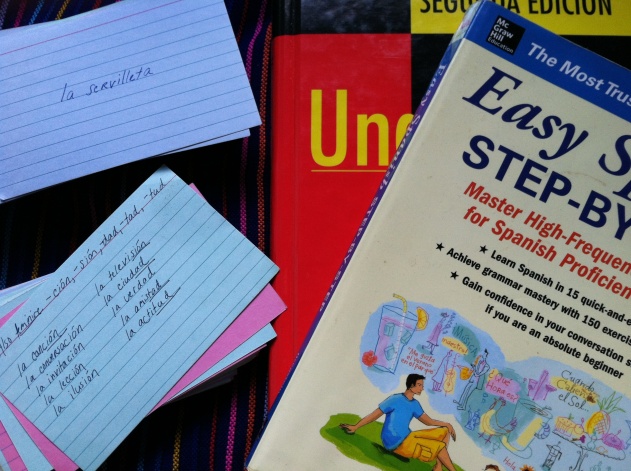Now that I’ve been in Mexico for 8 months, friends from home often ask, “So you’re fluent, right?”
The general answer is “no.” As to the quality of my Spanish, it depends on who you ask.
The Mexicans in my town are incredibly nice and encouraging which is why it’s so pleasant to learn here, and in contrast, I imagine, to the immigrant experience in New York.
The Americans who are fluent in Spanish—they interrupt with well-meaning corrections, which while technically useful, I do not enjoy as much as the patience and occasional assistance from locals who let me screw up without obvious judgment.
I genuinely appreciate their tolerance because I’m finding I’m at a weird, wonderful stage of language learning where I no longer have to ask several times for clarification or resort to No entiendo. All of a sudden I’ve leveled up and it’s incredible.
This past week my boss’s husband—who is Mexican, a very fast speaker and a random interjecter—asked apropos of nothing whether I thought that if a call went straight voicemail, it meant that the phone trying to be reached was off.
Normally with this interaction I would say “Que?” prompting him to clarify or resort to English, which he speaks pretty well.
But this time I stared at him for a moment, not because I didn’t understand, but because I realized I knew exactly what he was saying, that I could pick out individual words like buzon (voicemail) and apagar (to turn off). I could even judge him for busting in with a topic that at that moment at nothing to do with anything. It was like I’d taken a drug or put on special glasses.
The spell broke a bit when I responded in my wonky Spanish, “Probably that mean it go to voicemail, but not also.” I seem to have a language tick that conflates the words for “also” and “always.” I also communicate almost entirely in the present tense. But who cares—hooray for me!
Right now I object to the assistance of well-meaning bilingual-ers not because of pride, but because it’s like I’ve just gotten the hang of riding a bike. I don’t want training wheels or someone running along behind me with their hand on my seat. I want to see how far I can get by myself.
I had taken exactly seven Spanish classes before I arrived in Mexico in August and to me, the fact that I can say or understand anything is a minor miracle. Prior to those classes I basically had Sesame Street Spanish: Hola, agua, caliente.
My classes gave me a critical foundation (pronouns and verbs) and then I was thrown into it. For a long time I felt like I wasn’t getting better exactly, but simply in a constant state of vocabulary acquisition: printer, tree trunk, shape, nest, pickup truck, cutting board.
I could use my basic vocabulary to get around and, if I was feeling chatty, learn new vocabulary. For example, I could say, “It’s really hot! How do you say water from skin?”
What’s changed is that I’ve started to make friends who only or mostly speak Spanish. Hanging out with them has been incredibly helpful. Also, beer. From a pedagogical perspective, “inhibition” is called “affective filter”—a mental screen comprised of embarrassment, frustration, stress and pride that reduces receptivity to learning. Beer is fantastic for reducing affective filter.
The practice I’ve gotten when aided by beer has surprised me by carrying over to instances where there’s been no beer at all. This past week I had an entire chat with a friend of a friend about the necessity of clear messaging in community education. Then I spoke at length with my school’s cleaning lady who explained that the reason she asked me boss whether “gringos eat meat” (I was in the room when she asked and presumed I didn’t understand until I started laughing) was that that she herself can’t eat fatty foods since she gave birth to her youngest daughter.
Right now no topic is boring. Content is irrelevant for me. The fact that I can understand and respond – that’s the high.
Now that I’m speaking more fluidly I’ve started to go back to the books. There is only so much I can convey without tenses and that’s frustrating. The reflexive is a mystery. Do I like food? Does food like me? I don’t know, but at this rate I’m pretty sure I will soon.
